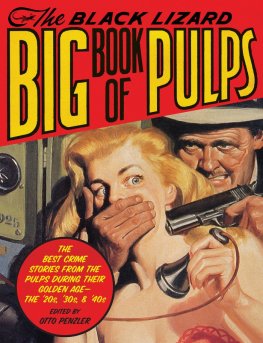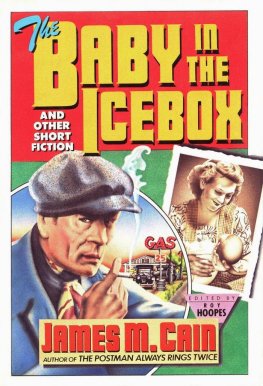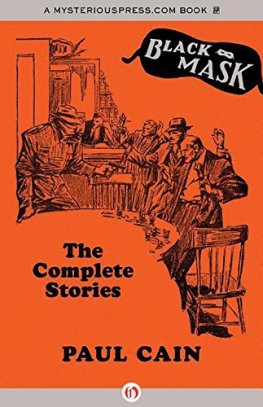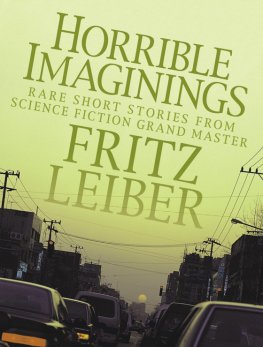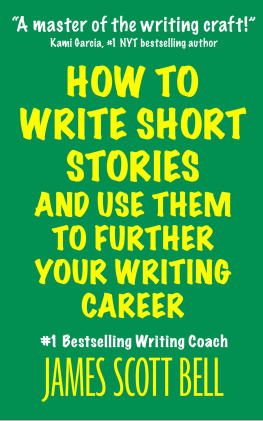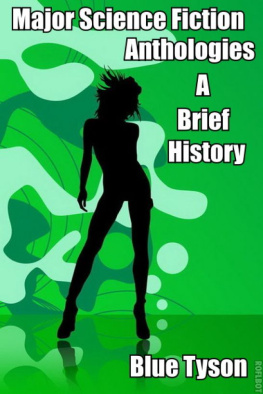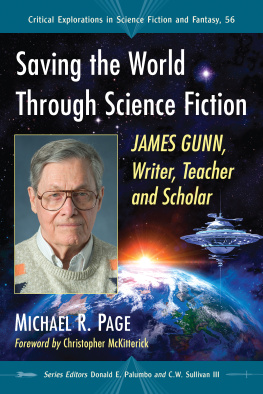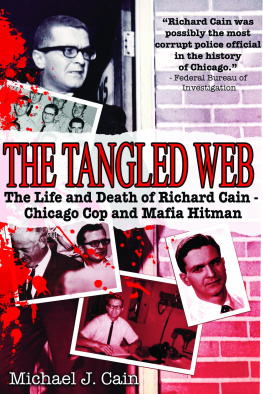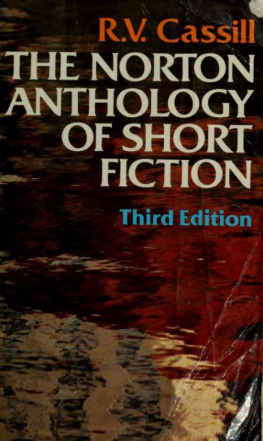James M. Cain
Career in C Major and Other Fiction
Introduction
Was the Tough Guy Really a Humorist at Heart?
Probably no one was more surprised at the worldwide reaction to The Postman Always Rings Twice when it was published in 1934 than its author, James M. Cain. His little novel rocked readers and critics as they had never been rocked before. Cain had described Postman simply as being about a couple of jerks who discover that murder, though dreadful enough morally, can be a love story, too, but then wake up to discover that once theyve pulled the thing off, no two people can share this terrible secret. It was his favorite theme, which he had already developed in his 1928 short story Pastorale and would use again in his 1936 Liberty magazine serial, Double Indemnity. Cain, who was 42 when Postman was published, thought the book might sell a few thousand copies, if he was lucky, and maybe he would have another idea for a novel.
But Postman was that rare achievement a literary success that was also a best-seller which kept on selling and selling around the world and down through the years. It was also bought immediately by Hollywood (although MGM would have to wait 10 years before liberalized censorship laws would permit a filmable script) and made into a Broadway play (by Cain), and it became one of the first big paperback best-sellers.
Suddenly, James M. Cain, the former human interest writer for Walter Lippmanns New York World editorial page, who specialized in little pieces about food, music, sports, holidays, and domestic problems, the iconoclast who had written satiric dialogues for H. L. Menckens American Mercury, the disenchanted New Yorker editor and failed Hollywood screenwriter who had most recently been writing humorous short stories and articles for magazines, was now the nations preeminent tough guy writer. As The New York Times book reviewer said, James M. Cain made Hemingway look like a lexicographer. He also defied anyone to put the book down after reading its remarkable first sentence, which would soon be widely quoted in reviews, literary essays, and writing classes: They threw me off the haytruck about noon... Franklin P. Adams, with even more enthusiasm, said in his review: Cains style... is better than most of Hemingways... I cant detect a stylistic flaw in it. Most of the other critics, at home and abroad, agreed: This is strong mans meat, said Herschel Brickell in his syndicated book review, and not for those who mind blood and raw lust. In London, James Agate wrote: One day last week the postman slipped into my letter box a slim package containing a little volume of fewer than 200 pages... a major work... The book shakes the mind a little as the mind is shaken by Macbeth. And Gilbert Seldes said: Its a long time since I have heard so many people of so many different tastes say that a book is great.
Great, shocking, and incredibly fast-paced was the almost universal reaction to Postman. And from those first reviews on through 17 other novels and numerous short stories and magazine serials written before he died in 1977, Cain tried to live down his label as a tough guy. And it was not just the fact that Cain knew he was not, personally, a tough guy; he was much closer to Sean OFaolains description when the Irish author referred to Cains normal tough-guy heart-of-a-baby self. What really concerned Cain was his literary reputation as hard-boiled. When Alfred A. Knopf, understandably trying to capitalize on the impact of Postman, promoted him as a tough guy writer, Cain complained: I wish you would stop advertising me as tough. I protested to the New York critics about their labelling me as hard-boiled, for being tough is the last thing in the world I think about, and its not doing me any good to have such a thing stamped on me. Actually I am shooting for something different and plugging me as one of the tough young men merely muddles things up.
Knopf agreed to stop the advertising, but wrote Cain: I suspect that every other review of every other hard-boiled book that may be published in the next three years will drag you and the Postman into it.
Knopf was right and Cain (with the help of Double Indemnity, which features adultery and premeditated murder, and Serenade, which features a shocking murder and a perhaps even more shocking love scene in front of an altar in a Catholic church in Mexico) quickly emerged as the personification of the tough guy writers in the 1930s. In 1941, Edmund Wilson, in his famous essay The Boys in the Backroom, nominated Cain as the best of the writers he called the poets of the tabloid murder, and Cains reputation was now firmly established. By 1947, Cain felt it was time to do something about it. In the Preface to his little novel The Butterfly (which also featured a murder and incest) Cain tried to put to rest forever the tough guy label. I belong to no school, hard-boiled or otherwise, he wrote, and I believe those so-called schools exist mainly in the imagination of critics and have little correspondence in reality. Writing a book, he continued, is a genital process and all of its stages are intra-abdominal; it is sealed off in such fashion that outside influences are almost impossible. Schools dont help the novelist, but they do help the critics; using as mucilage the simplifications that the school hypothesis affords him, he can paste labels wherever convenience is served by pasting labels, and although I have read less than 20 pages of Mr. Dashiell Hammett in my whole life, Mr. Clifton Fadiman can refer to my hammet-and-tongs style and make things easy for himself.
Cain also tried once and for all to discourage the Hemingway comparisons: I owe no debt, he wrote, beyond the pleasure his books have given me, to Mr. Ernest Hemingway, and he goes on to document the fact that his style was established in the mountain of newspaper and magazine writing he did for The Baltimore Sun, The New York World, and The American Mercury long before Hemingway appeared on the scene.
But the tough guy legend persisted and was finally cemented forever by David Madden, who, in the late 1960s, included Cain in his anthology of literary essays, The Tough Guy Writers of the Thirties, and wrote his own valuable literary study James M. Cain, in which he described him as the Twenty Minute Egg of the Hard Boiled School. Cain was still alive, of course, when Madden was developing his tough guy studies and protested mildly although he and Madden eventually became good friends and Cain helped him with the biographical aspects of his study.
So Cain passed into history in 1977 firmly labeled as perhaps the most eminent of the tough guy, hard-boiled school of writers, and I do not intend to argue otherwise. But I will state, for the record, that Cain did not start out that way. And it might all have turned out otherwise if, for example, Postman had been seen by the critics and readers more as Cain saw it: the story of a couple of jerks who were cursed with the wish that came true, which Cain said was what most of his novels were about. Frank Chambers finally won the girl he lusted after and Cora achieved respectability with her restaurant. But they could not afford the price they had to pay. And it is good to remember what Wilson also said, that Postman, although it included brilliant moments of insight, also had elements of unconscious burlesque and was always in danger of becoming unintentionally funny.
This was also true of Double Indemnity and Serenade, and the question is: Just how unintentional was Cains predilection for comedy, burlesque, and humor? If you go back to the beginning of his career, almost 20 years before

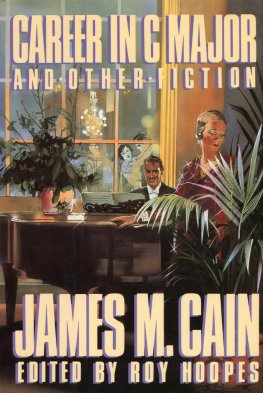
![Dzhejms Kejn - Root of His Evil [= Shameless]](/uploads/posts/book/880444/thumbs/dzhejms-kejn-root-of-his-evil-shameless.jpg)
